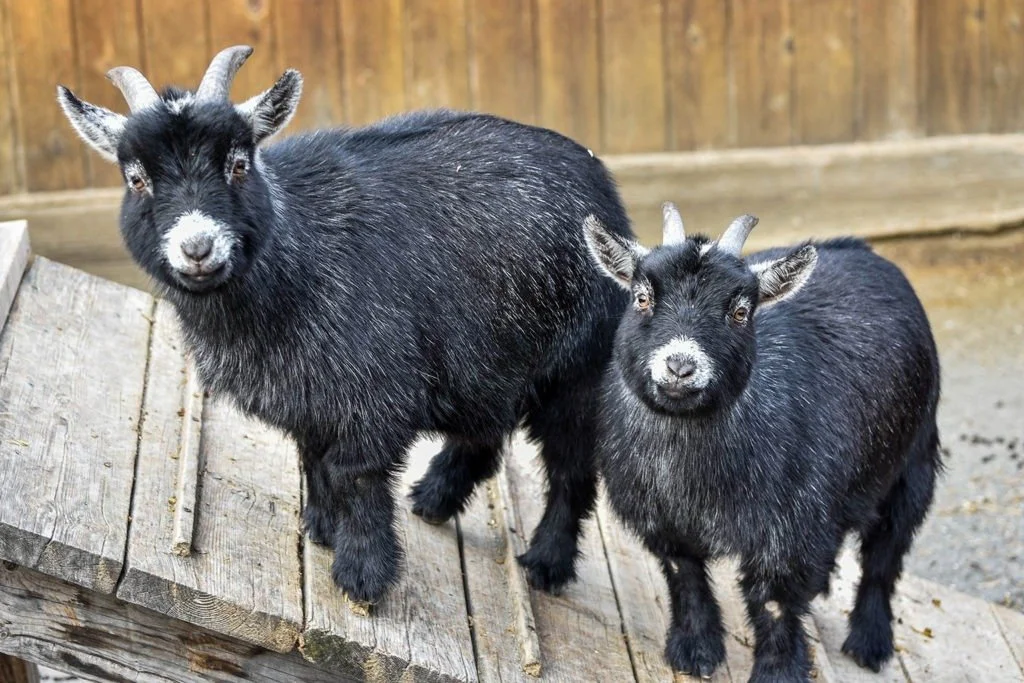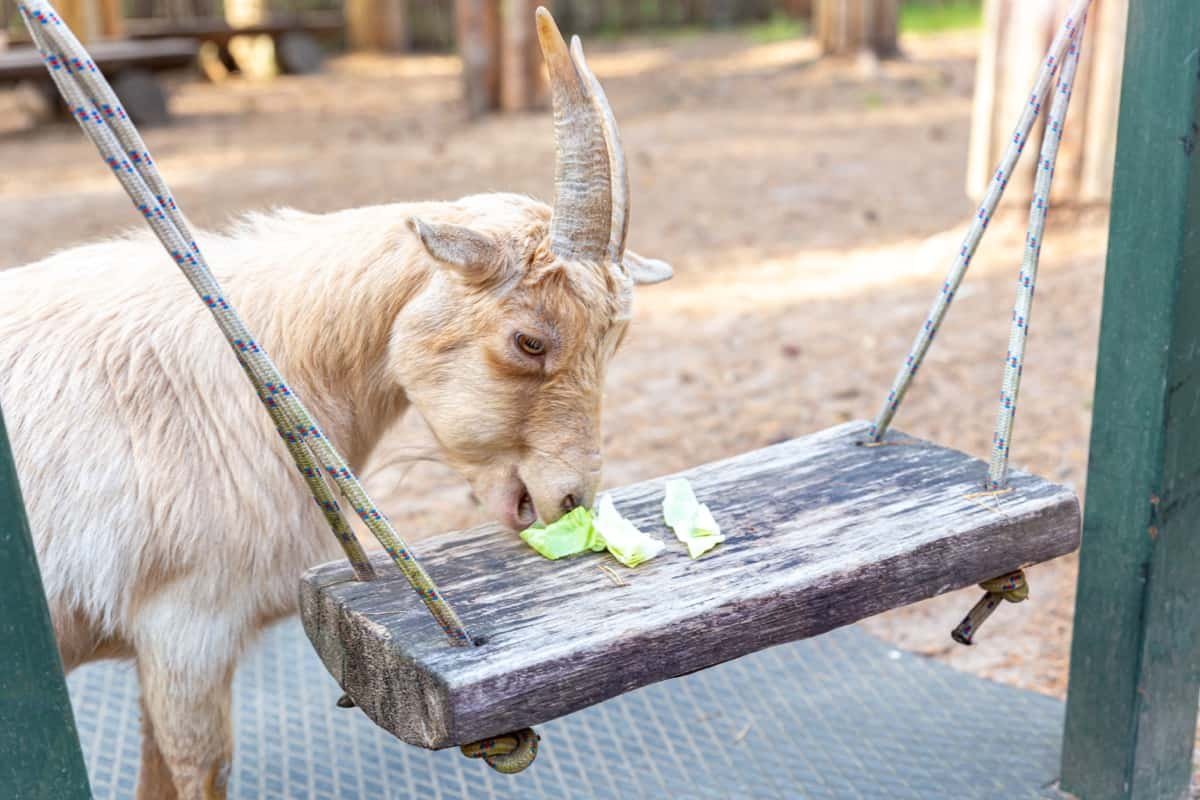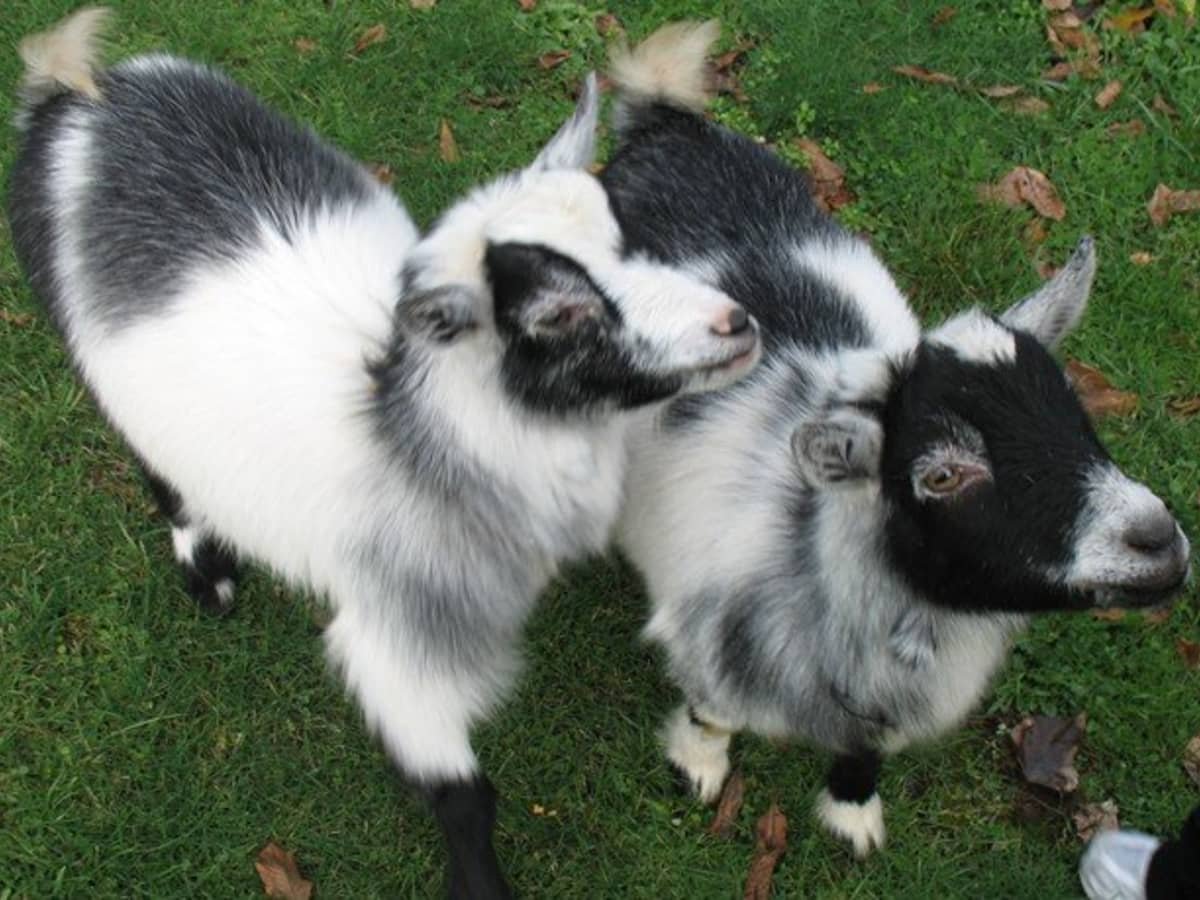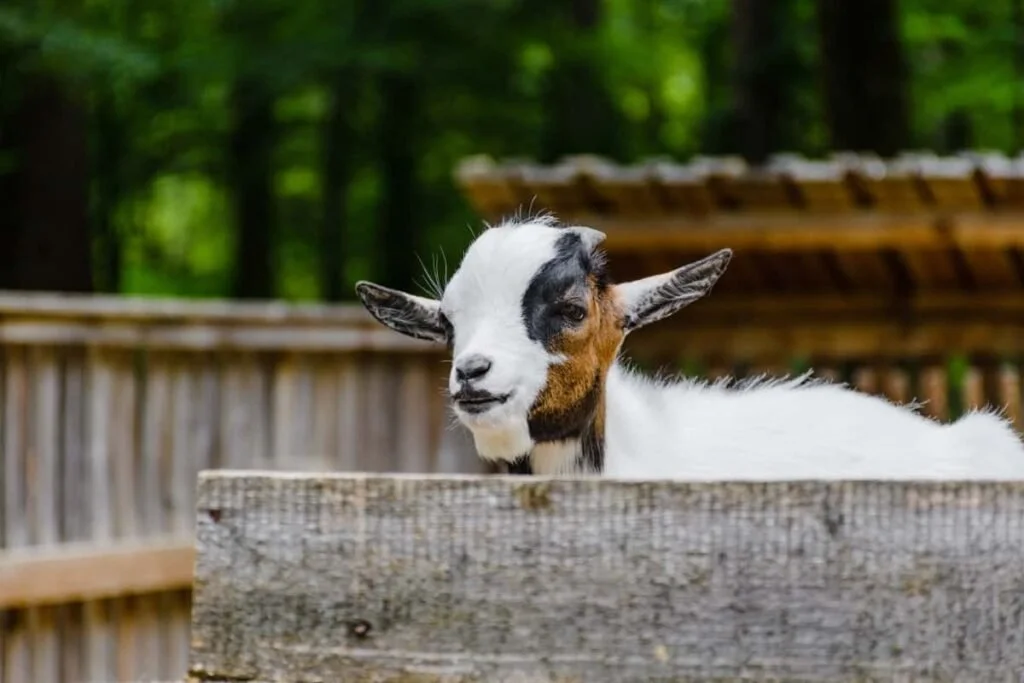Raising Pygmy Goats: Essential Tips for Success
Discover > Raising Goats > Raising Pygmy Goats: Essential Tips for Success
Raising pygmy goats has gained popularity over the years due to their small size, adaptability, and friendly nature. These miniature goats have been found to make excellent pets, and they can also contribute to small-scale farming by providing milk and serving as efficient weed control. In this article, we'll explore the essential considerations one should make when beginning to raise pygmy goats.
When it comes to raising a pygmy goat, having the right knowledge and understanding can make the experience rewarding and delightful. These miniature goats, known as the pygmy goat breed, are popular for their friendly nature and adorable appearance, making them excellent as a pet pygmy goat.
Originating from the West African region, the African pygmy goat has now become a favorite amongst modern hobby farmers across the globe. Despite their small stature, these goats are robust milk producers, with goat milk that's rich in nutrients, making them ideal for small-scale dairy production.
Whether you have female pygmy goats or are interested in nurturing baby pygmy goats (also known as pygmy babies), this guide aims to provide essential tips and insights for success in your goat-rearing journey.
Before diving into the world of pygmy goat care, it's crucial to understand their unique characteristics and needs. Pygmy goats, although similar to other goat breeds, differ in size and have specific requirements related to housing, feeding, and overall care.
By acknowledging the similarities and differences between pygmy goats and their larger counterparts, potential owners can ensure that they are adequately prepared to take on the responsibility of raising and caring for these endearing animals.
In the next sections, we'll discuss the fundamentals of raising pygmy goats, highlighting essential aspects such as diet, housing, health, and socialization. By providing a comprehensive understanding of these rudimentary elements, new and prospective pygmy goat owners can embark on this exciting journey with confidence and knowledge.
Understanding Pygmy Goats
Pygmy goats are a popular breed of small-sized goats known for their friendly and social nature. Originating from West Africa, they have become a common choice for both beginners and experienced goat keepers due to their low maintenance requirements and adaptability to various environments.
An adult pygmy goat typically weighs around 75 pounds and stands 16 to 23 inches tall at the shoulder. Their small size makes them more manageable for handling and reduces the amount of feed they require compared to standard-size goats. The average lifespan of a pygmy goat ranges from 10 to 15 years, though this can be influenced by factors such as care and susceptibility to diseases.
Pygmy goats have a quick maturity rate, with some reaching breeding age as young as three months. However, it is recommended to breed them after they reach nine to ten months of age for optimal health. In terms of housing, a 10-foot by 10-foot space can comfortably accommodate two pygmy goats.
When it comes to diet, pygmy goats are browsers, preferring to nibble on twigs, leaves, and sometimes plants in your garden. To ensure a balanced diet, it is essential to provide them with grass-type hay and standard goat feed. Adequate care and attention to their nutritional needs will help maintain their health and longevity.
Raising pygmy goats can be a rewarding experience for both new and seasoned goat keepers. Their small size, social disposition, and manageable needs make them well-suited for a variety of environments and situations.
Choosing Your Pygmy Goat
Considerations for Selection
When selecting a pygmy goat, it's important to consider its intended purpose, whether it's a pet, for milk production, or meat. Pygmy goats are known for their small size, friendly nature, and adaptability, making them a popular choice among beginners and experienced goat keepers alike. However, it is important to carefully evaluate each goat's temperament, health, and compatibility with your lifestyle and environment.
Begin by determining the gender and age of the goat you're interested in acquiring. Does are typically chosen for milk production, while Wethers (neutered males) are often preferred for pets due to their docile disposition. If you're focused on meat production, you may find that young, intact males best suit your needs.
Health is another key factor to bear in mind. Ensure the goat has been well cared for, is up-to-date on vaccinations, and is free of parasites. Take note of the animal's physical appearance, such as its body condition, coat quality, and overall demeanor, to help assess the animal's well-being.
Adopting Vs. Buying
There are two common ways to welcome a pygmy goat into your life: adopting or buying.
Adopting from a shelter or rescue organization can be a meaningful and ethical choice, as it may provide a loving home for an animal in need. Organizations such as these often have strict policies on animal care and may be able to offer valuable input and resources to support you in your new journey as a pygmy goat owner.
On the other hand, buying a pygmy goat from a reputable breeder can ensure that you're getting an animal with a known health and genetic background. Breeders can provide valuable information about their goats, such as parentage, lineage, and temperament. Furthermore, purchasing directly from a breeder may increase your chances of finding a goat that suits your specific needs and preferences.
In any case, be sure to visit the location where the pygmy goats are kept and observe the conditions, treatment, and overall well-being of the animals. By doing so, you will be better informed to make a responsible and confident decision when choosing your pygmy goat.
Housing and Environment
Raising pygmy goat. This requires appropriate shelter and environmental conditions for their well-being and overall health. This section will discuss the essential aspects of their housing, including indoor and outdoor options, as well as temperature and climate control.
Indoor Housing
Indoor housing for pygmy goats should be well-ventilated, dry, and clean. Ensure sufficient space for sleeping, feeding, and playing. It is important to have separate areas for individual goats, especially during breeding or kidding season.
Bedding materials like straw or wood shavings can be used for added comfort. Proper sanitation and regular cleaning of the indoor housing area are crucial to prevent diseases and maintain a healthy environment for the goats.
Outdoor Housing
Outdoor housing allows pygmy goats to roam, graze, and exercise. A sturdy fence around the enclosure is necessary to protect the goats from predators and prevent them from wandering off. A minimum height of 4 feet is recommended for the fence to keep the goats secure. The shelter should be provided in the outdoor area, particularly during extreme weather conditions, to allow the goats to escape from direct sunlight, rain, and strong winds.
Temperature and Climate Control
Pygmy goats are adaptable to a wide range of climates but prefer temperate conditions. As they are prone to heat stress, their housing should have access to shade during the hot summer months. In colder seasons, ensure their indoor housing is draft-free, adequately insulated, and maintains a relatively constant temperature. Providing fresh drinking water and proper ventilation is crucial to maintain a comfortable living environment, which contributes to the overall health and well-being of pygmy goats.
Feeding and Nutrition
Pygmy Goat Diet
Pygmy goats thrive on a balanced diet that consists of good-quality hay or grass, fresh water, and an iodized salt (how long does iodized salt last?) block. In instances where pasture is not available, like during winter, you can provide them with timothy hay. Pygmy goats don't always require grains, unlike other larger goat breeds. However, you can supplement their diet with grains in moderation.
To ensure proper nutrition, consider providing them with commercial goat feed that meets their nutritional needs. It's essential to offer age-appropriate feed; for instance, young goats require a higher protein content than adults.
Proper Feeding Techniques
When feeding pygmy goats, it's crucial to follow these guidelines:
Provide clean, fresh water daily to ensure hydration and overall health.
Regularly clean and refill their feed troughs to avoid mold or bacteria growth.
Offer hay and grass in a clean, dry, and easily accessible area, using a hay rack or feeder to reduce waste.
Introduce grains moderately, depending on the goat's age, size, and activity level. Overfeeding grains can lead to gastrointestinal issues.
Provide an iodized salt block for them to lick to meet their mineral requirements.
Remember that proper feeding techniques play a crucial role in supporting the overall health and growth of your pygmy goats. Pay attention to their condition and adjust their diet accordingly, if needed.
Grooming and Health Care
Routine Grooming
Proper grooming is essential for maintaining your pygmy goat's health and well-being. Regular brushing helps prevent matting in their thick, dense coats. Aim to brush your goat at least multiple times per week, if not daily. In addition to coat care, it is essential to:
Trim their hooves every 4-6 weeks to prevent overgrowth and infections
Remove dirt and debris from their eyes, ears, and nose regularly
Keep their living space clean and dry to prevent diseases
Common Health Issues
Pygmy goats can encounter various health issues that can affect their quality of life. Some common health problems include:
Parasites, both internal and external, can lead to anemia, weight loss, and general poor health
Pneumonia, which may be caused by poor ventilation, dampness, or rapid temperature changes in their environment
Digestive issues like bloating, diarrhea, and enterotoxemia, often resulting from improper diet, sudden feed changes, or stress
To minimize these risks, monitor your goat's behavior and look for any signs of illness, such as lethargy, loss of appetite, or visible discomfort. Consult a veterinarian if you suspect any health issues.
Veterinary Care
Regular veterinary care is crucial to maintain your pygmy goat's health. Some recommended veterinary care practices include:
Annual vaccinations to protect against diseases such as tetanus and enterotoxemia (also called overeating disease)
Routine deworming to prevent internal parasites
Regular health check-ups to monitor your goat's overall health and well-being
Working closely with a goat-savvy veterinarian helps ensure your pygmy goat stays healthy and happy throughout their life. Early detection and treatment of any issues can significantly improve the quality of care and potentially extend their lifespan.
Breeding Pygmy Goats
Breeding Process
Breeding pygmy goats typically begins when they reach 9 to 10 months of age. To ensure successful breeding, it is important to monitor the female goat's heat cycle, which usually occurs every 18 to 24 days. During the breeding process, it is advised to introduce the female to a suitable male mate for a few days, allowing them ample time to mate. Gestation lasts for approximately 145 to 155 days, after which the doe will give birth to one or more kids.
To improve the chances of successful breeding, consider the following factors:
Ensure both the male and female goats are healthy and free from any illness or parasites.
Provide them with proper nutrition and maintain a balanced diet, including quality hay, water, and essential minerals.
Choose a comfortable and spacious living environment, with safe shelter ensuring protection from harsh weather conditions.
Post-Natal Care
Post-natal care for pygmy goats is crucial for newborn kids' health and growth. Following the birth, ensure access to warmth and proper ventilation as the kids may not be able to regulate their body temperature. Here are some tips for proper post-natal care:
Monitor the doe's udder for signs of infection, and ensure the kids are nursing regularly. Colostrum, the first milk produced, contains vital nutrients and antibodies for newborns.
Keep the living area clean and dry, regularly replacing bedding to prevent the growth of harmful bacteria.
Provide the doe with additional nutrients, such as grain or alfalfa, to support milk production.
Introduce the kids to solid food, such as hay or grain, at around two to three weeks of age.
Observe the kids for any signs of illness or injury, and consult a veterinarian if needed.
By following these guidelines for breeding and post-natal care, raising healthy and happy pygmy goats is achievable and enjoyable.
Frequently Asked Questions
What is the ideal shelter for pygmy goats?
Pygmy goats need a clean, dry, and well-ventilated shelter to protect them from harsh weather conditions. The shelter should have a raised platform for the goats to rest on, as well as ample space for them to move around. It's important to provide straw bedding for insulation, and the shelter must be regularly cleaned and maintained to prevent diseases and parasites.
What is the average lifespan of a pygmy goat?
The average lifespan of pygmy goats ranges between 10-15 years when they are well taken care of and receive proper medical care. They are a hardy breed, able to adapt to various climates and thrive in different environments.
Which food mix is best for a pygmy goat?
A balanced diet for pygmy goats should include good quality hay (such as alfalfa or grass hay), fresh water, and a specially formulated goat feed mix. The feed mix should contain essential vitamins and minerals to ensure proper growth and health. Access to fresh vegetables, fruits, and leafy greens can also supplement their diet.
Are pygmy goats suitable for beginners?
Yes, pygmy goats are an excellent choice for beginners as they are docile, friendly, and relatively low-maintenance. However, they require proper care, feeding, and housing to thrive. Novice goat keepers should invest time in learning about their needs and behavior before bringing them home.
What do pygmy goats enjoy playing with?
Pygmy goats are playful animals that enjoy various types of play structures, objects, and activities. Items such as wooden ramps, stumps, large rocks, and sturdy tires can provide an engaging and fun environment for them. They also enjoy interacting with their caregivers and other goats through play.
What are the pros and cons of keeping pygmy goats as pets?
Pros of keeping pygmy goats as pets include their friendly nature, small size, and adaptability. They can also provide milk and be used for clearing unwanted vegetation.
Cons involve the need for proper housing, fencing, and veterinary care, as well as meeting local zoning and livestock regulations. They are social animals and require companionship, preferably with another goat. Additionally, males tend to develop strong odors, especially during the breeding season.








